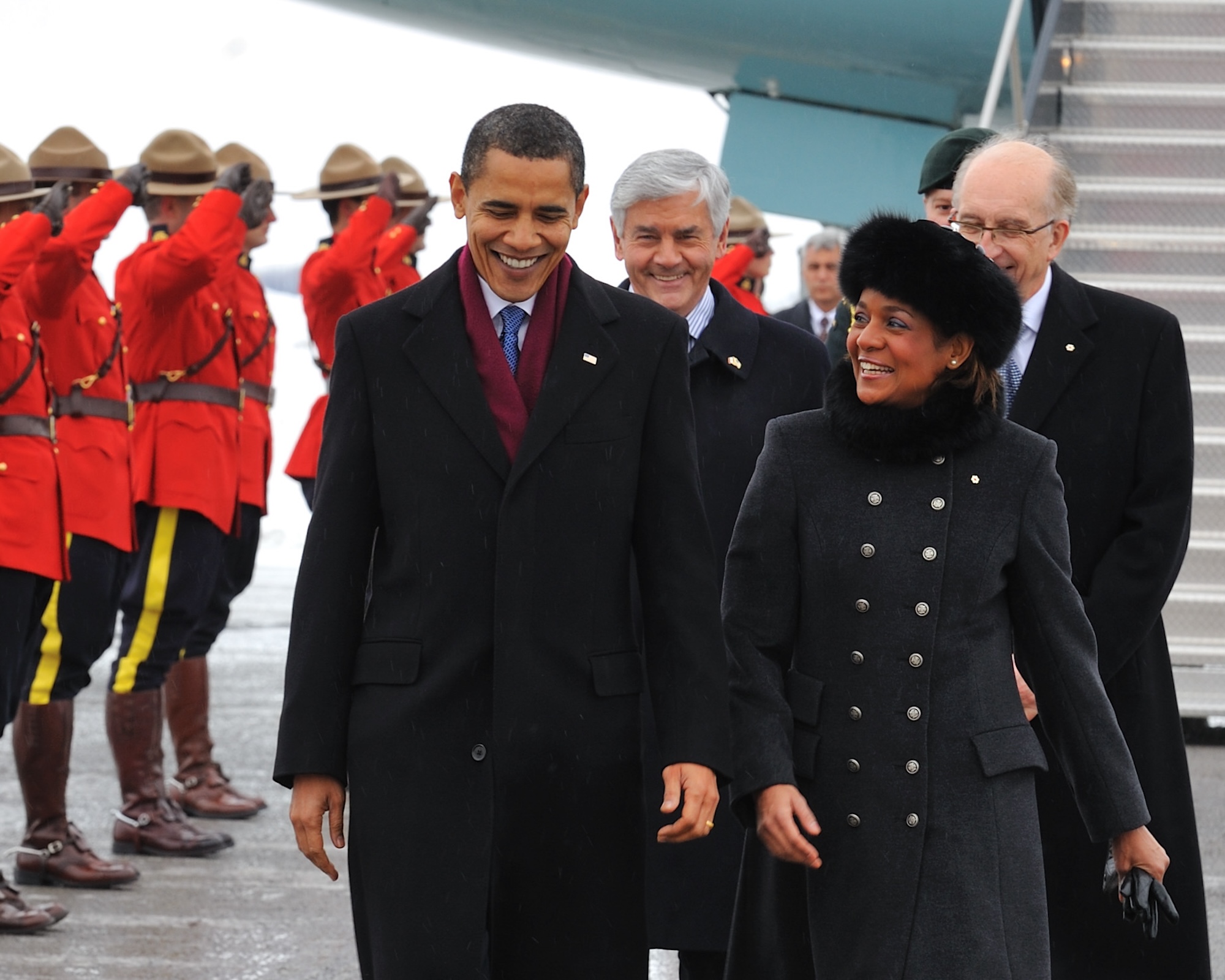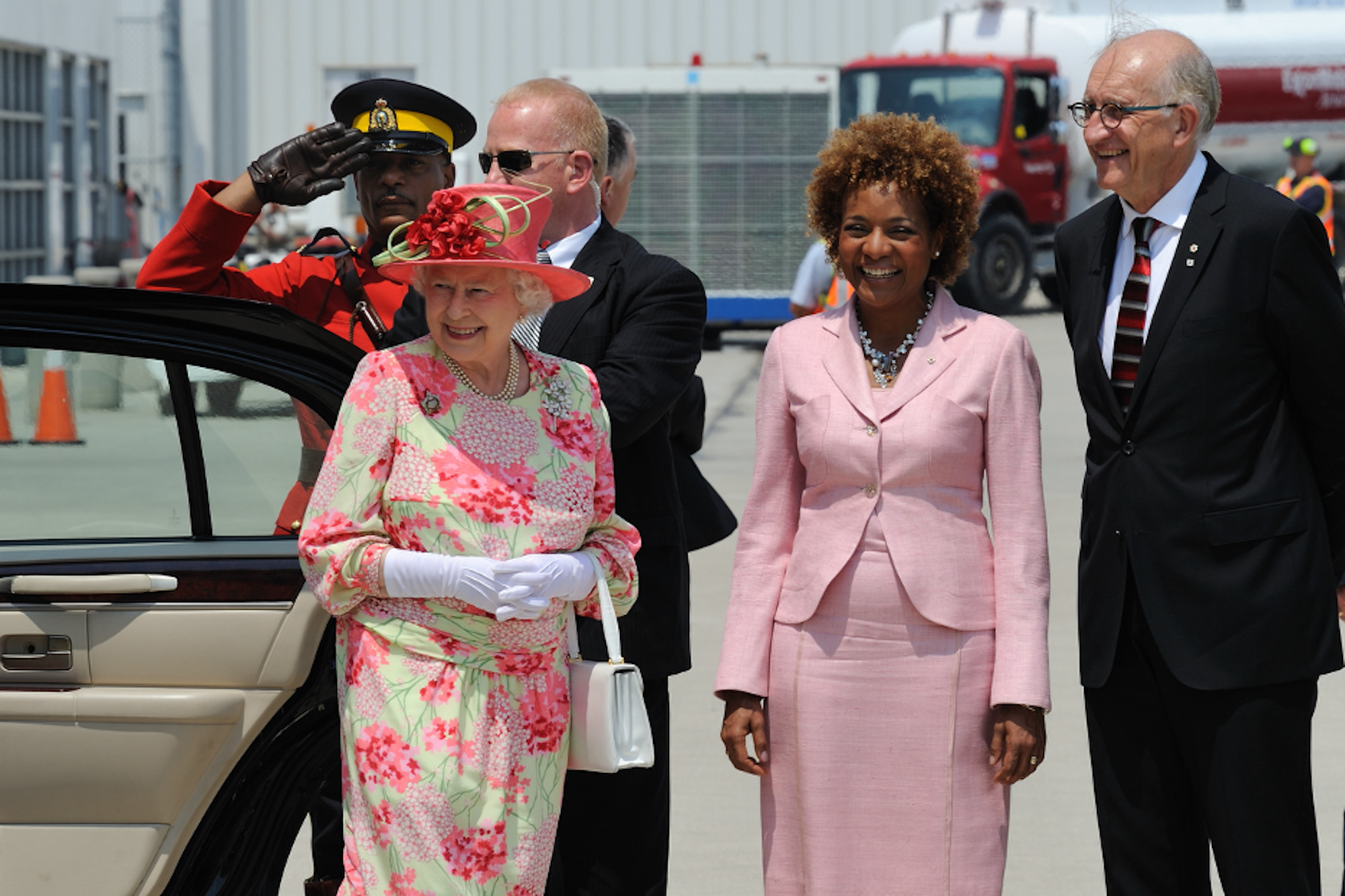Indifference is never an option, and justice must prevail: MPP alumnus interviews the Right Honourable Michaëlle Jean
The Right Honourable Michaëlle Jean, former Governor General of Canada and the first to hold the office of Haitian heritage, sat down with Shoaib Rizvi, MPP alumnus and Canadian social innovator, at her Ottawa office to mark the 20th anniversary of her installation on September 27, 2005, and discussed leadership, public service, and advancing social justice.

The Right Honourable Michaëlle Jean, you arrived in Canada as a young girl after your father had been persecuted for standing up to repression in Haiti, were you conscious of his struggle shaping your own career and philosophy?
I was born into a time of fear. When a brutal dictatorship seized power in Haiti, anyone who dared to question authority faced persecution. My father was targeted for standing up to injustice, my mother was harassed, and entire communities lived under the shadow of terror. As a little girl, I witnessed things no child should ever see: public executions and people disappearing overnight. My parents refused to hide these truths from me. They believed, with unshakable conviction, that indifference is never an option.
Those early experiences became the foundation of my life. Justice—with a capital J—was not abstract; it was survival. When we fled to Canada as refugees, I carried both the scars of repression and the strength of my heritage. Haiti—the first Black republic and the first nation to abolish slavery—remained under siege. That history gave me a spirit of resistance, a belief that human dignity must always be defended, and a deep understanding that freedom is fragile.
As I reflect on the twenty years since my installation as Governor General of Canada, I see a world that is still wrestling with the same forces I knew as a child—violence, exclusion, the dehumanization of entire populations. Exclusion in any society creates a profound deficit—a deficit of possibilities, of ideas, of economic opportunities and perspectives—and confronting it is essential if democracy and development are to thrive.
I remain hopeful because I have seen people rise together, turning silence into voice, and my calling is to honor every voice and defend dignity.

Becoming Canada’s 27th Governor General was a symbolic moment for the country. What is your personal reflection on that moment?
When I was approached to become Canada’s 27th Governor General, I spent four weeks reflecting. It could not simply be something that happened to me. I felt the weight of history—the first Black person to carry the constitutional responsibility of head of state, a role meant to unite Canadians beyond politics. This moment had to belong to something larger than myself. Leadership, as I see it, is collective leadership—the power to bring people together, to shine a light on shared truths, and open doors for conversations too often left closed.
My life has often meant stepping into spaces where no one expected someone like me to stand—and naming the truth when it mattered most, and truth became the heartbeat of my mandate. I am proud to have launched Canada’s Truth and Reconciliation Commission because my mother taught me that without truth there is no justice. I also believe there is a deep connection between Indigenous peoples and Black communities—both among the most underserved in our country and both carrying histories of remarkable resilience.
Serving as Governor General brought me face to face with the very history that shaped our world. Canada is a constitutional monarchy, and tradition required a private meeting with Queen Elizabeth II. I remember the two of us sitting alone, and I said, “Who would have thought? My ancestors were slaves; yours were slavers. And here we are, sitting together, and I am free.” She paused, then replied softly, “You are probably freer than I am.” It was a moment of recognition—two women acknowledging the weight of history and the progress of the present. She spoke of her service during the Second World War with the Red Cross, when she worked anonymously alongside others.
Another unforgettable moment came when Barack Obama, newly elected President of the United States, made his first state visit to Canada. Stepping off Air Force One in February—Black History Month—he smiled and said, “Who would have thought that the Commander in Chief of Canada and the Commander in Chief of the United States would meet in office at this time, both of African descent?” We felt as if we were floating inside history as it unfolded.
During your tenure as Governor General, you represented Canada on numerous state visits, including several across Africa. Which moments from those visits have stayed with you most profoundly?
As Commander-in-Chief of the Canadian Armed Forces, I traveled to Afghanistan three times, wearing the uniform not only to stand with our troops but to sit with Afghan communities and, most importantly, to listen to Afghan women. I wanted to hear, in their own words, why our presence mattered and bring those truths home to Canadians.
For my first state visits, I chose to begin with Africa. People wondered why, and I said simply, because Africa is where we all begin. It is a continent the world has taken so much from and too often misunderstood. To truly know what Africa has given us—and how it has been wounded—is to understand something essential about ourselves.
From North Africa southward, I traveled for months, greeted everywhere with a kind of astonished warmth: "She represents Canada, and yet she has come to listen to our lives, our struggles, our dreams". In villages and town squares, I joined women in their dances, moving to rhythms older than memory. We laughed, held hands, and for those moments we were simply women together—heart to heart, beyond language and politics.
That journey touched something ancestral in me. I come from the Caribbean, from the lands of the Arawaks, Caribs, and Taino peoples—territories colonized by Spain, Britain, and France. My birthplace, Haiti, was once the French colony of Saint-Domingue, where half a million Africans were enslaved for generations until they rose, inspired by the ideals of liberty, equality, fraternity, and defeated Napoleon Bonaparte to found the world’s first Black republic and the first state to abolish slavery.
In 2010, as Haiti was shattered by the earthquake, you mourned loved ones while leading Canada’s response and deploying the Armed Forces. This was clearly an emotional time for you, what helped you continue to lead through that time?
When the earthquake struck Haiti, I learned within minutes. I was Governor General of Canada, yet in that instant I was also a daughter of Haiti. I had no news of loved ones as images of unimaginable devastation began to emerge—when I later flew over Port-au-Prince, it looked as though an atomic bomb had fallen. Entire neighborhoods, childhood landmarks, pieces of memory itself, were gone.
I couldn’t hide my grief. At the press conference I spoke in Creole so Haitians would hear directly: "We are here. You are not alone". My duty to Canada and my love for Haiti were never in conflict—humanity is one, and compassion knows no borders.
In Haiti, I met with women in the camps and listened to their stories of loss and survival—their courage, their refusal to surrender hope, shaped me deeply. Canadians mobilized with breathtaking solidarity, the world responded, and amid the loss of more than 300,000 lives, I witnessed an unbreakable will to survive.
From 2010 to 2014, you served as UNESCO’s Special Envoy for Haiti, carrying its voice to the world. Today, what is your dream for Haiti’s future?
My dream for Haiti is that the world finally recognizes what this nation has given to humanity. Haiti—the first Black republic and the first to abolish slavery—sparked the very movement of decolonisation across the Americas and beyond. It even extended its hand across oceans: when Greek revolutionaries sought freedom from the Ottoman Empire, they turned to Haiti—and Haiti answered. I hold the letter of appeal to the Haitian government, a testament to a country that helped shape the course of history.
Years later, when I visited Greece as Governor General of Canada, President Papoulias introduced me with words I will never forget: “The woman I introduce to you is the Governor General and Commander-in-Chief of Canada, a country that stood with us against the Nazis. But she also comes from another place that is deeply important to us. We would not be where we are today without Haiti. She is from Haiti.”
And yet today, Port-au-Prince is under siege by heavily armed criminal networks, supplied by weapons flowing freely across borders, including from the United States. Haitians are paying the price for a global failure to act. Solidarity is justice.

Having established a foundation devoted to empowering Canada’s most vulnerable youth, what message would you share with the young leaders of the Blavatnik School of Government at the University of Oxford as they prepare to serve their communities?
In all my work, including the foundation I lead, we confront the most devastating form of exclusion: racial discrimination—racism that is often invisible but deeply systemic. I do this not because I am Black, but because justice must matter to everyone. Eradicating racism is a responsibility for the whole of society. Even our language reveals the problem: we speak of visible minorities, as if others are somehow unseen, when in truth we all share the same humanity. And aggression is aggression—there is no such thing as a harmless ‘micro-aggression.’
The women in my family anchored this conviction. My great-grandmother and my mother believed, with unshakable certainty, that education is the key to freedom. Their faith in knowledge as liberation lit my path. As a young woman, I worked in women’s shelters, standing beside those reclaiming their dignity and safety. By the time I was installed as Governor General, my mother was already in the grip of Alzheimer’s. She could no longer grasp the ceremony, yet I felt her presence, reminding me that indifference is never an option, and justice must prevail.
Working with underserved youth in Canada—particularly Indigenous and Black communities—has revealed realities many in power never see. I have met brilliant young people weighed down by systemic barriers, yet still daring to dream. Service, I have learned, is not about personal advancement; it is about advancing humanity.
To the young leaders of the Blavatnik School of Government, my message is this: use your education and influence to serve something far greater than yourself—serve humanity, serve justice, and help write a different story, one of dignity, equality, and true reciprocity.

